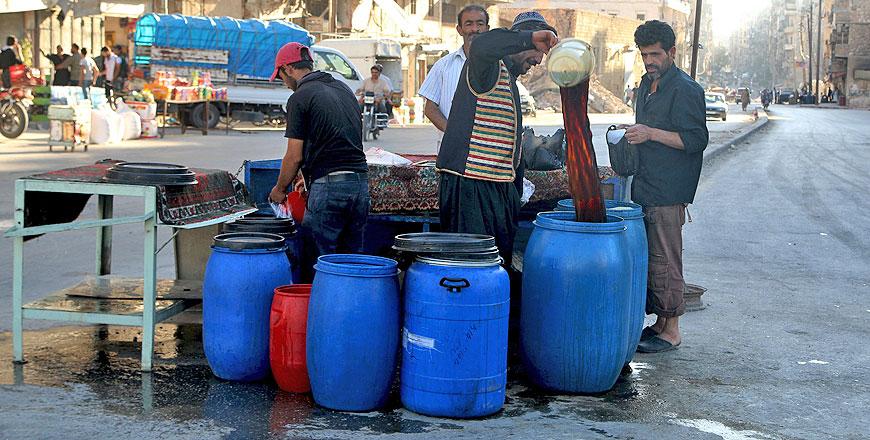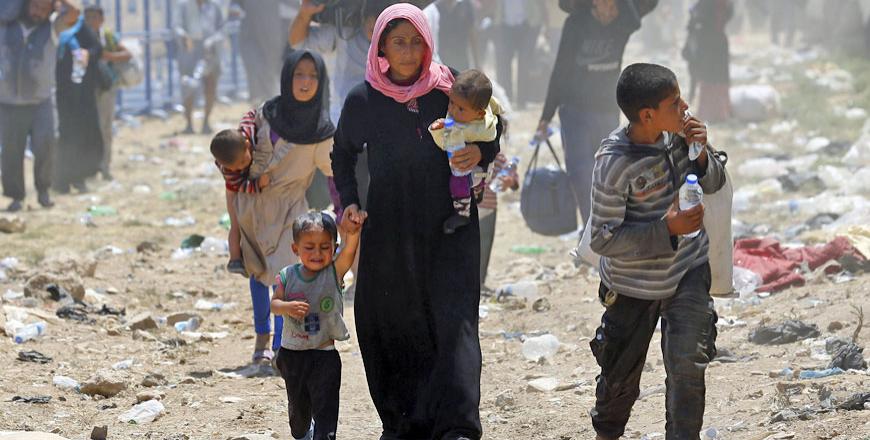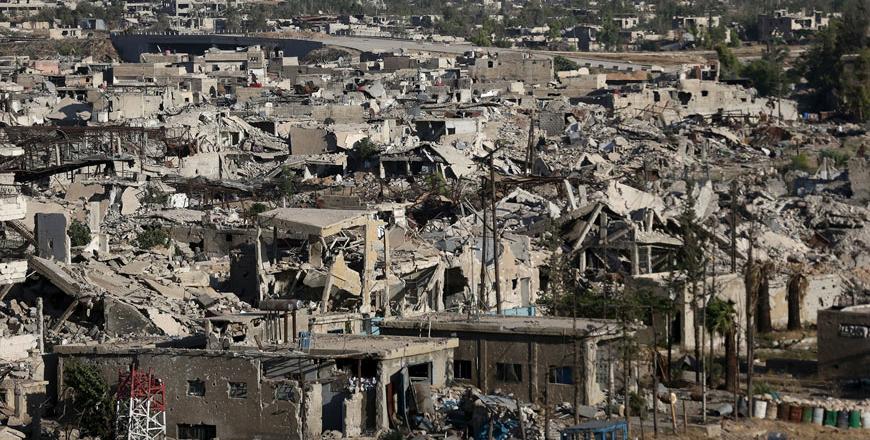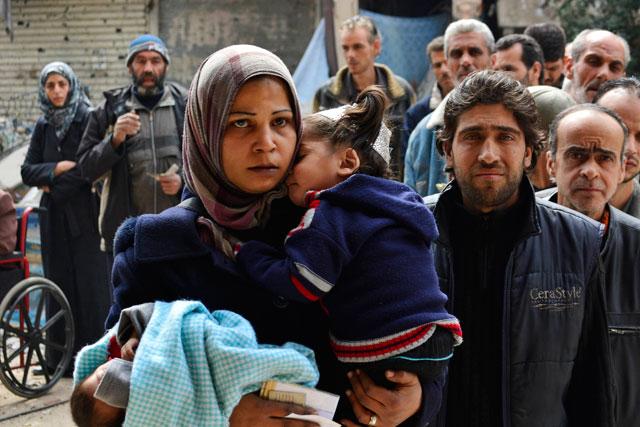You are here
Syria Kurds advance after seizing base from Daesh
By AFP - Jun 24,2015 - Last updated at Jun 24,2015

A man buys Sous, a traditional Ramadan drink during the fasting month, in Aleppo, Syria, on Tuesday (Reuters photo )
BEIRUT — Syrian Kurds and allied rebels advanced against the Daesh terror group on Tuesday, capturing a strategic town a day after seizing a base from the militants near their Raqqa bastion.
A spokesman for the Kurdish People's Protection Units (YPG) and a Britain-based monitor said the anti-Daesh forces had taken Ain Issa on Tuesday, after capturing the nearby Brigade 93 base overnight.
"In the last few moments, Ain Issa has come under our full control, along with dozens of villages in the surrounding area," YPG spokesman Redur Khalil told AFP.
The Syrian Observatory for Human Rights, a Britain-based monitor, said Daesh forces had withdrawn from the town and YPG and rebel forces were now sweeping it to clear mines laid by the jihadists.
Ain Issa's fall comes after Daesh ceded control of the Brigade 93 base on Monday night and the border town of Tal Abyad more than a week ago.
Ain Issa and Brigade 93 are around 55 kilometres north of Raqqa, the de facto capital of Daesh's self-declared Islamic "caliphate" in Syria and Iraq.
They both lie on a main highway that runs between Kurdish-held territory in Aleppo province to the west and Hasakeh province to the east.
The same route links territory held by Daesh group in Aleppo and Hasakeh provinces.
"It's also a defence line for Raqqa," said Mutlu Civiroglu, a Kurdish affairs analyst.
"Considering that Raqqa is a sort of capital of the 'caliphate,' it creates a lot of pressure on IS [Daesh]."
Daesh 'pushed
The YPG-rebel advance has been backed by air power from the US-led coalition fighting Daesh, with the Observatory saying at least 26 militants were killed in international strikes in and around Ain Issa on Monday.
"IS's defence lines have now been pushed back to the outskirts of Raqqa city because the area between Raqqa and Ain Issa is militarily weak and they have no fortifications in that area, which is mostly open plains," Observatory chief Rami Abdel Rahman said.
The advance is the latest success for YPG forces and their rebel allies, helped by US-led air strikes.
On June 16, they captured Tal Abyad on the Turkish border, which had served as a key conduit for Daesh bringing in fighters and weapons and exporting black market oil.
Kurdish forces have been chipping away at Daesh territory in the northern Raqa province for months, after successfully repelling a fierce attack by the jihadists on the border town of Kobani in January.
The YPG has emerged as “arguably the most effective fighting force against IS in Syria”, analyst Sirwan Kajjo said after the capture of Tal Abyad.
“They are well-organised, disciplined and are big believers in their cause.”
Daesh destroys mausoleums
Khalil declined to comment on where the anti-Daesh fighters would focus their attention next, but suggested an operation against Raqa was unlikely in the short-term.
“Raqa is much further away, and well-defended, it would require significant forces and weapons,” he said.
Civiroglu too said any offensive against Raqa would require lengthy planning and an upgrade to the weapons available to the YPG and its allies.
“I don’t see that Raqa is the next target. For now they want to consolidate their hold on Tal Abyad and the area around it,” he said.
Syria’s antiquities chief, meanwhile, confirmed Daesh had destroyed two ancient religious mausoleums in the old city of Palmyra.
Maamoun Abdulkarim said the extremists had blown up the tombs of Mohamed Bin Ali and Nizar Abu Bahaaeddine, two Muslim figures.
The militants consider tombstones and mausoleums to be a violation of their strict interpretation of Islamic law, and have regularly destroyed both in areas they control.
Related Articles
Akçakale, Turkey — Syrian Kurdish fighters on Monday cut a key supply line to the Daesh terror group's de facto capital Raqqa as they battle
BEIRUT — Syrian Kurdish fighters have recaptured more than 10 villages seized by Daesh north of its de facto capital of Raqqa city, ai
Daesh militants launched a major offensive Wednesday to try to capture a strategic town on the Syrian-Turkish border, leaving dozens dead in clashes, a monitor said.

















